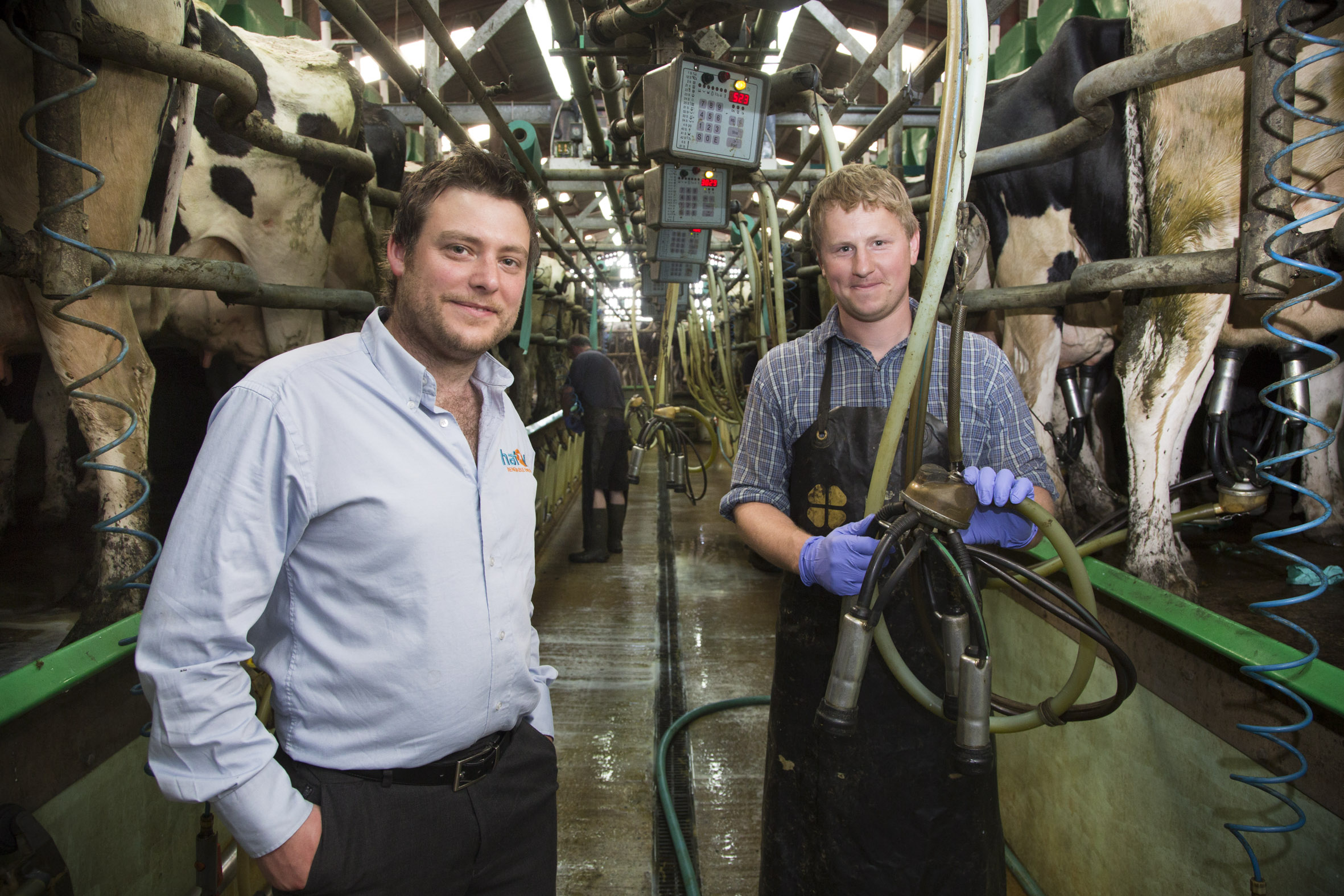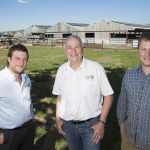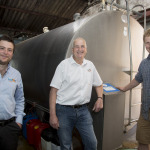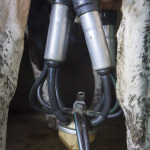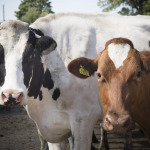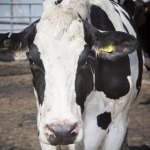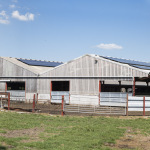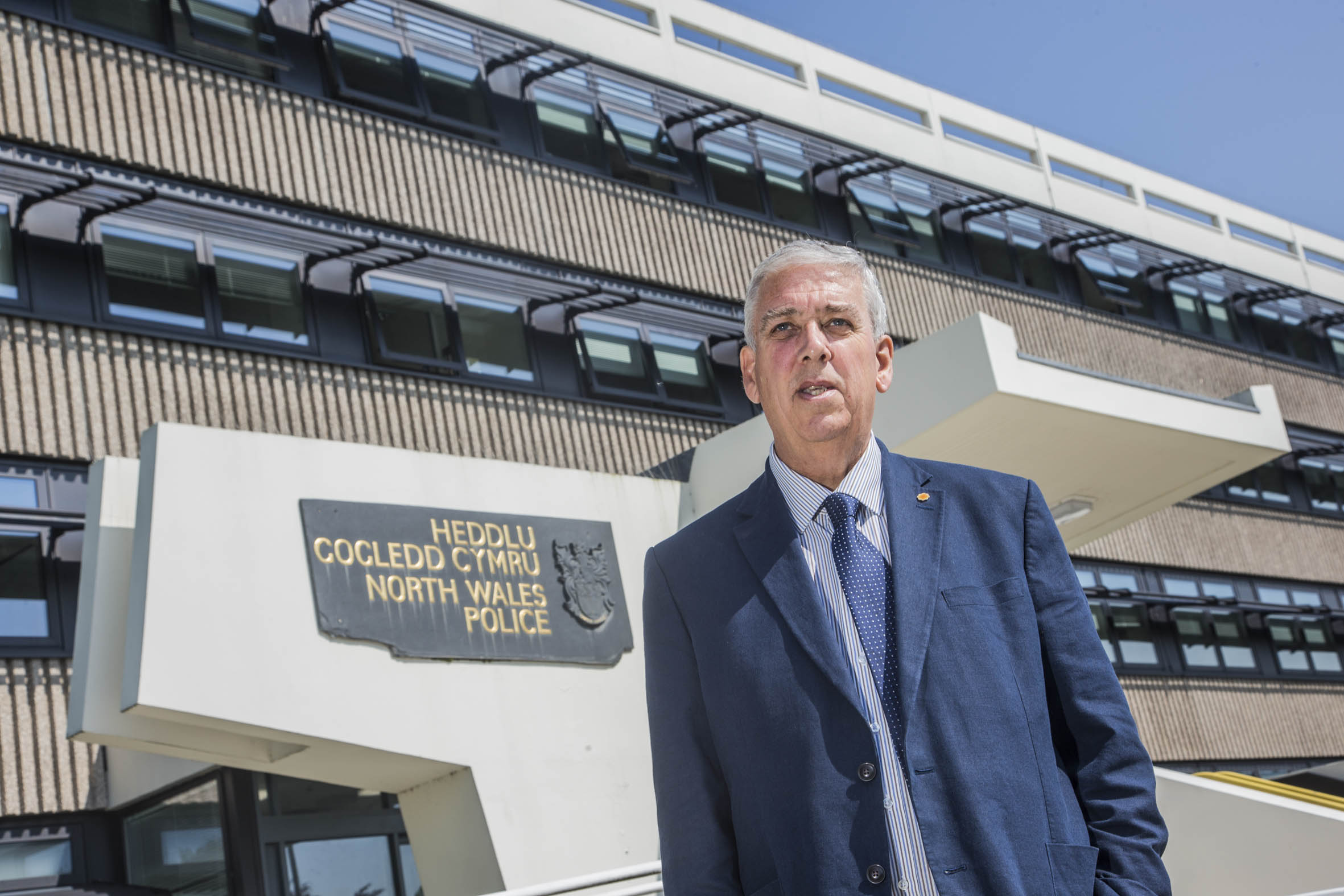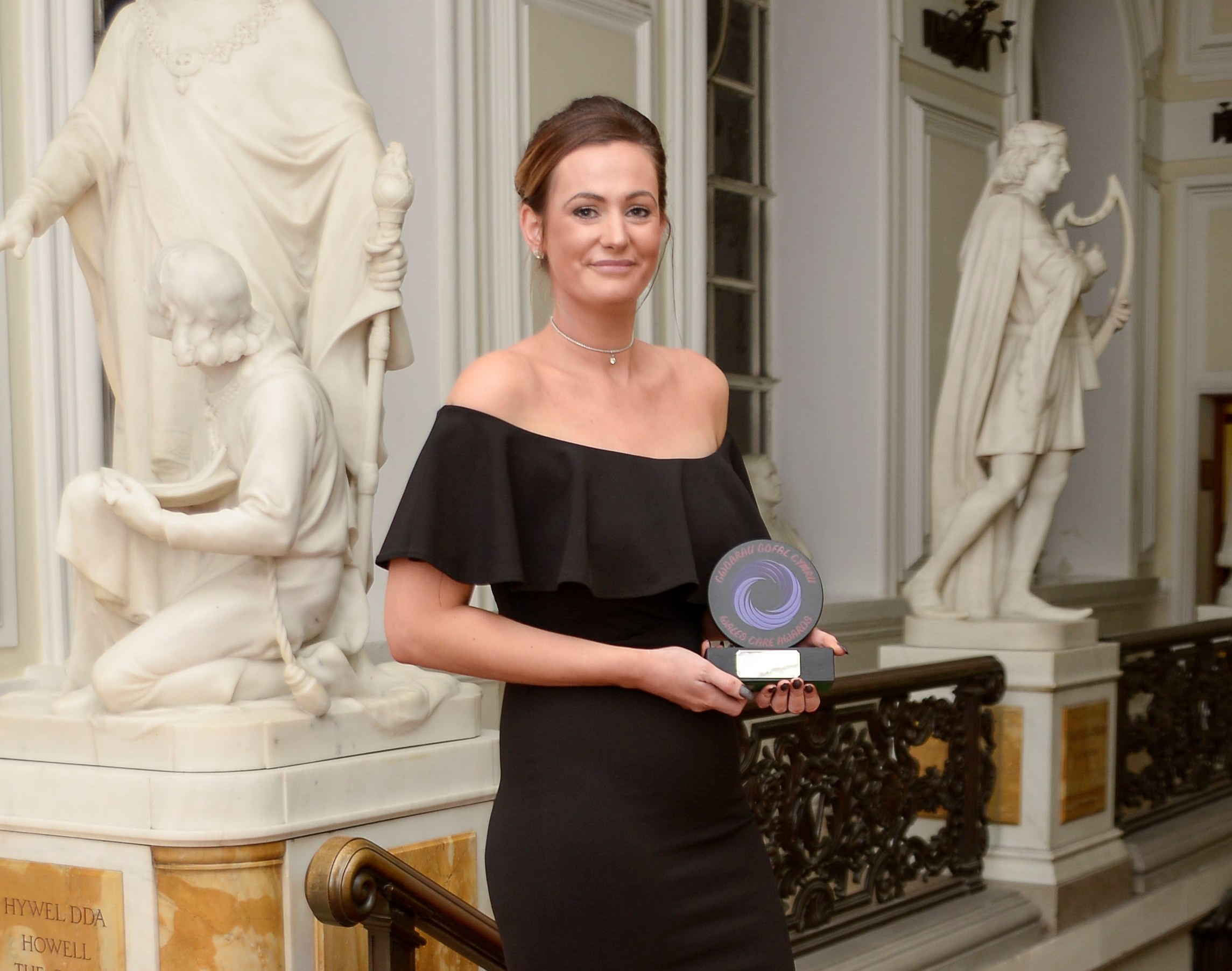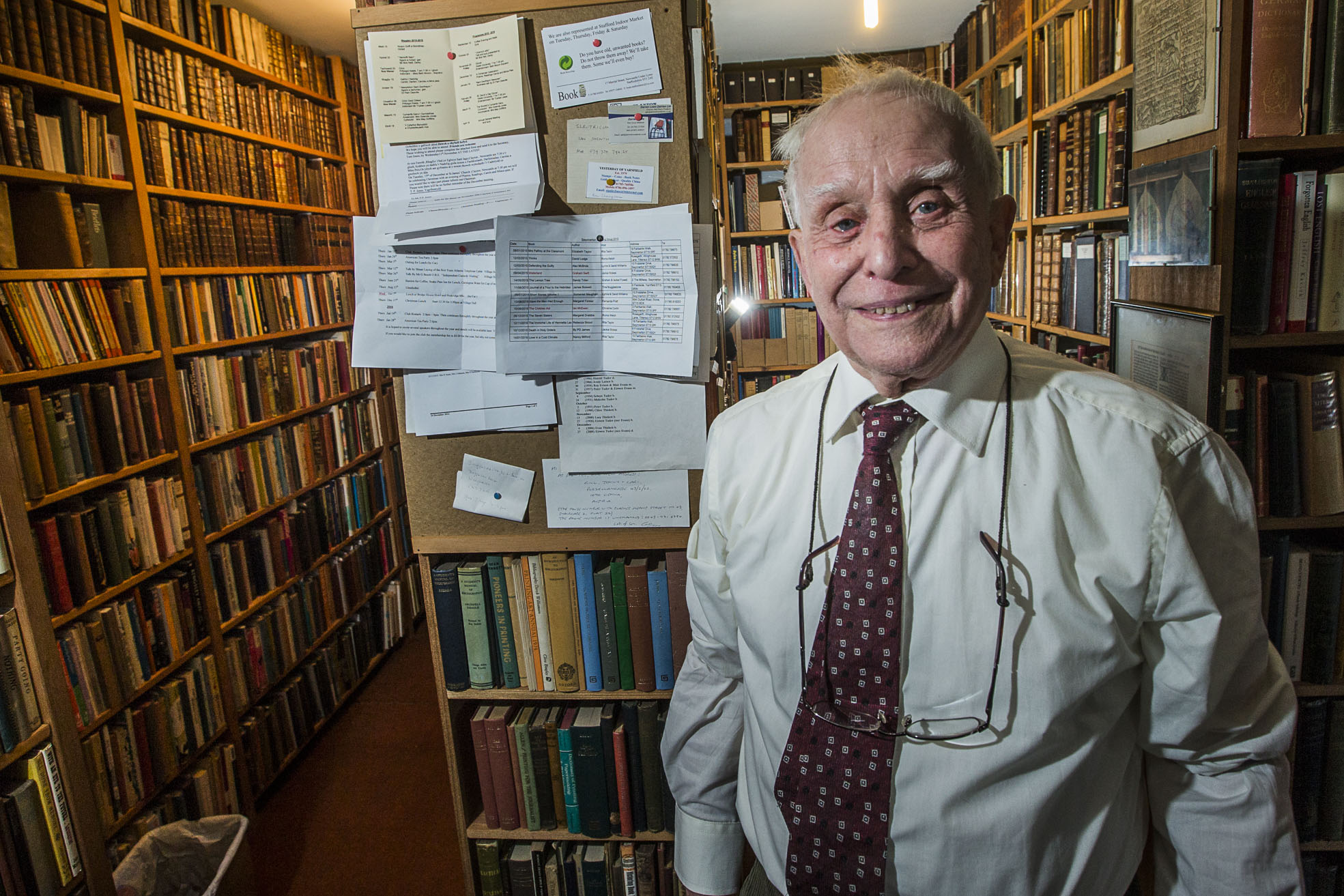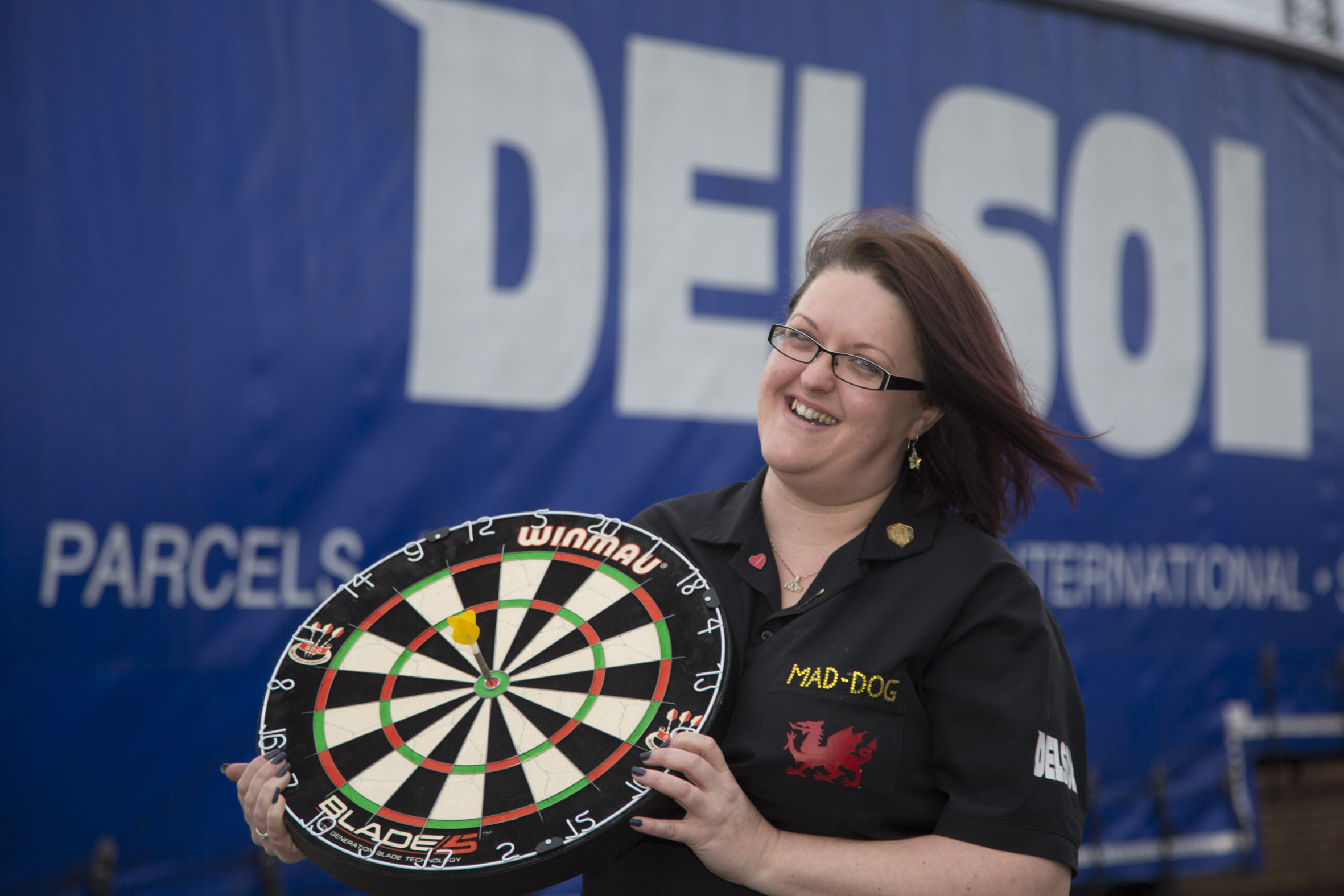The sun is shining on a top dairy farm in Denbighshire and helping it save over £10,000 a year on its huge electricity bills.
The herd of 370 Holstein cattle at Kilford Farm, near Denbigh, produce over three million litres of milk a year but a huge milking parlour used twice a day eats up electricity.
But now the farm, run by Dilwyn Evans and his son Dafydd, generates more than half the electricity it uses thanks to a massive array of 392 solar panels installed by ‘green’ energy experts Hafod Renewables.
The photo-voltaic panels are on three roofs of the farm’s barns which handily face due south for maximum exposure to the sun’s rays.
They produce 80,000 kilowatt hours (KwH) of electricity a year – enough to power over 20 homes – which is just over half what the 700-acre farm uses.
David Jones, Managing Director of Hafod Renewables, whose company has now installed solar power at almost 100 farms in North Wales, said: “At Kilford, like all dairy farms, electricity is one of their biggest overheads and this system is making a massive difference to them.
“They were paying about £1,000 a month for their electricity and that’s now down to less than half of that, about £5,000 a year and they get paid a feed-in tariff as well which is over £5,000 annually.
“It really makes sense for dairy farmers with their very high electricity usage and in fact for all farmers who usually have very large roof areas, much of which is suitable for solar panels – they’re making money and helping save the planet as well.
“At Kilford it is perfect as they face due south down the Vale of Clwyd so we were able to put nearly 400 panels in and it’s a big saving for them because on a good day in the summer they’re almost entirely solar-powered.
“We’ve also installed a monitoring system to show when the periods of maximum generation are so they can schedule water heating and other power-heavy work and so we can check the system is working efficiently.”
Dafydd Evans said: “We had been thinking about a solar system for a while and we spoke to Hafod Renewables and decided to go for it and we’ve been very pleased.
“It does what it’s supposed to do and there’s no maintenance – we don’t have to do anything except get on with the milking.”
Dairy farms are very high users of electricity – the milking machines are powered by it and the milk has to be cooled from 38 degrees C when it comes out of the cow to between 3 and 5C.
The 4,500 litres from each milking then has to be stored at that temperature in a giant tank to await collection by a tanker to take it up the road to the creamery at Llandyrnog and after each milking session the 300 feet of pipes have to be sluiced clean with a tankful of water heated, by electricity, to 85C.
Hafod Renewables, based on Denbigh’s Colomendy Industrial Estate, was founded six years ago by former Holywell High School pupil David, an electrician and graduate in Renewable Energy and his father, Richard, a heating engineer, when the solar industry, fuelled by a generous feed-in tariff, was booming.
A Government cut to that tariff has driven many firms out of the business but Hafod, which employs six staff, has continued to grow as the company has expanded into other areas such as ground and air-source heat pumps, biomass and underfloor heating.
In those seven years – Hafod Renewables installed their first system in July 2010 – they have fitted over 10,000 solar panels, stacked end on end they would tower over 29,028 foot Mount Everest.
Most of their clients have been domestic solar systems but as well as almost 100 farms, they have also installed solar power on the new Holywell ‘super’ school, businesses, including one of Wales’s biggest boatyards, and a rugby club as well as providing biomass boilers and air and ground-source heating systems.
For more on Hafod Renwables go to https://www.hafodrenewables.co.uk/

